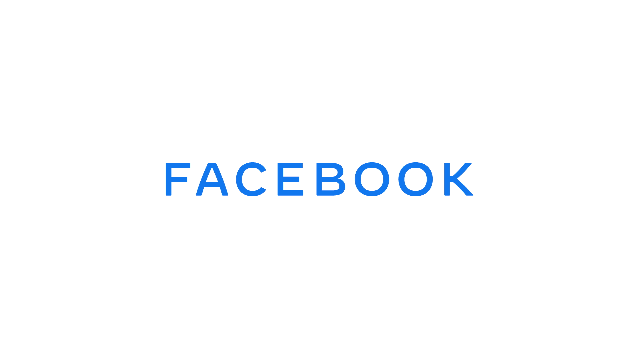Keeping a brisk pace in its eternal quest to be as headache-inducing as possible, Facebook announced on Monday that it has rebranded as FACEBOOK.
Yes, that’s right. Facebook is now FACEBOOK, written in all caps in what looks quite like a slightly friendlier version of the vaguely authoritarian Futura typeface to capture some of that “Zuckerberg stamping on a human face, forever” energy. While the spelling hasn’t changed, we’d like to imagine that the proper pronunciation of the rebranded entity involves terrified screaming.
According to the company’s blog post, written by chief marketing officer Antonio Lucio, the decision was made “to be clearer about the products that come from Facebook.” In practice, that means adding additional front-facing Facebook branding to products produced by subsidiary companies like Instagram, WhatsApp, and Oculus at a time when the company is staring down a steadily growing number of antitrust and anticompetition inquiries.
Facebook has also announced efforts to further integrate WhatsApp, Instagram, and Facebook Messenger into one unified technical backend, triggering additional antitrust concerns (such as whether it is trying to score an end-run around regulators by making the company too difficult to break up).
“This brand change is a way to better communicate our ownership structure to the people and businesses who use our services to connect, share, build community and grow their audiences,” Lucio wrote.
The main Facebook mobile app will retain its historic branding, in which the horrified screaming is only implicit.
According to Bloomberg, the rebrand is not actually about corporate transparency in the traditional sense. Instead, it’s about trying to reclaim any remaining goodwill users have towards Facebook’s subsidiaries. Lucio told the network that Pew Research Centre polling showed about 29 per cent of users didn’t know Facebook owns both Instagram and WhatsApp, but “When they know, the overall appreciation for the Facebook family actually grows.” (Lucio conceded that more closely associating the privacy-centric WhatsApp with Facebook may end with it experiencing what he euphemistically termed a “brand tax.”)
Facebook also considered changing its corporate name à la Google’s 2015 decision to restructure under the Alphabet umbrella, Lucio told Bloomberg, but that would have been “perceived as disingenuous by the rest of the world.” Instead, the company wants “to step up and deal with” its problems, Lucio added.
In any case, Gizmodo’s editorial style guide clearly states “Do not use ALL CAPS unless it’s an actual acronym, to avoid inflating brands’ stylistic importance.” So, from our perspective, good work presumably holding dozens of marketing meetings to change absolutely nothing.
